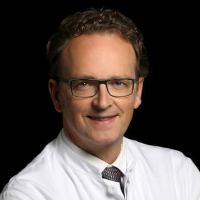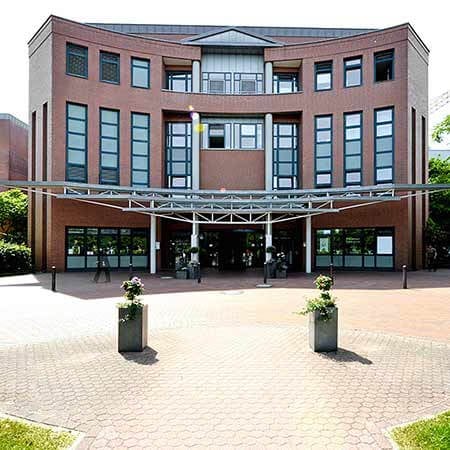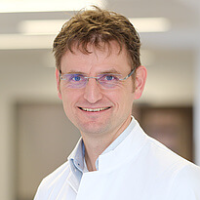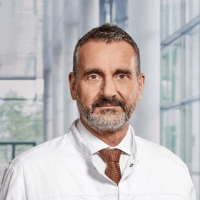Reconstruction Surgery of Atrial Septal Defect (ASD) in Germany
Treatment prices are regulated by national law of the corresponding countries, but can also include additional hospital coefficients. In order to receive the individual cost calculation, please send us the request and medical records.

Department of Cardiothoracic Surgery
According to the Focus magazine, the Department of Cardiothoracic Surgery ranks among the top German medical facilities specializing in the surgical treatment of diseases of the cardiovascular system and lung cancer! The department offers the full range of surgical services for the treatment of diseases of the cardiovascular system, respiratory tract, including heart and lung transplantation, artificial heart implantation. The therapeutic options include aortic surgery, coronary artery bypass grafting, transplantation surgery, surgical treatment of heart rhythm disorders (arrhythmias), minimally invasive surgery, surgical treatment of the heart valves, including reconstructive interventions. All operations are performed using state-of-the-art technology and in accordance with the current recommendations of professional societies.






Department of Cardiac Surgery
The Department of Cardiac Surgery provides a full range of surgical treatment in its area of specialization. Special emphasis is placed on heart valve repair and replacement surgery, coronary artery bypass grafting, thoracic aortic surgery, adult congenital and acquired heart disease surgery, pacemaker and defibrillator implantation, and artificial heart implantation for severe heart failure. Many heart operations are performed using minimally invasive techniques, which has a positive effect on the healing of the surgical wound. Minimally invasive cardiac procedures also reduce surgical risks and contribute to a rapid recovery of the patient in the postoperative period. Surgical treatment of cardiac pathologies is performed in advanced operating rooms equipped with the latest technology. The cardiac surgeons of the department successfully perform routine and complex surgical procedures, saving the lives of thousands of patients. The specialists work in accordance with current clinical protocols and follow the recommendations of the German Society for Thoracic and Cardiovascular Surgery (DGTHG).


Department of Cardiothoracic Surgery and Vascular Surgery
The Department of Cardiothoracic Surgery and Vascular Surgery provides effective surgical treatment for diseases of the heart, respiratory system, and blood vessels. The team of cardiac surgeons operates on patients with heart valve pathologies, coronary heart disease, heart failure, and heart rhythm disturbances. In the field of thoracic surgery, the key focus is on the surgical removal of lung tumors and lung metastases. The specialists in this area also perform surgery to repair chest wall deformities. In the field of vascular surgery, interventions for abdominal and thoracic aortic aneurysms are most often performed here. The department's vascular surgeons are also exceptionally competent in the treatment of peripheral occlusive arterial disease. A great advantage for the department's patients is that almost all surgical interventions are performed using minimally invasive techniques, so there is no need for a long postoperative recovery. The department's operating rooms are equipped with state-of-the-art technology. This allows for effective and safe treatment. The priority is always personalized medical care for patients.






An atrial septal defect (ASD) is a common congenital heart disease that does not always require treatment. The treatment is most often performed using endovascular techniques whenever possible. However, in some cases, an atrial septal defect cannot be eliminated in this way. Cardiac surgeons then perform open-heart surgery to cure an atrial septal defect (ASD). If you need surgical treatment, you can go to Germany. You are welcome to use the Booking Health website to find out the cost of treatment in Germany and compare prices at different hospitals.
Content
- What is an atrial septal defect (ASD)?
- When is surgery for an atrial septal defect (ASD) required?
- How is surgery for an atrial septal defect (ASD) performed?
- Where to undergo your treatment for an atrial septal defect (ASD)?
What is an atrial septal defect (ASD)?
An atrial septal defect is a communication between the left and right atrium, that is, between the arterial and venous parts of the heart. There are five types of atrial septal defects (ASDs): primary and secondary ASDs, patent foramen ovale, and coronary and venous sinus defects. More often than not, it is an isolated heart disease, but it can also be combined with other cardiac pathologies.
Symptoms manifest themselves only in large atrial septal defects (ASD). The main complaints of patients include the following:
- exercise intolerance;
- heart rhythm disorders;
- rapid pulse;
- dyspnea.
Echocardiography (heart ultrasound) is used to diagnose the disease. The examination is usually carried out through the chest, while the placement of the sensor in the esophagus during ultrasound scanning is uncommon. Whenever required, doctors may refer the patient to have a cardiac CT or MRI scan, but these examinations are usually not required.
When is surgery for an atrial septal defect (ASD) required?
Not all patients with atrial defects require treatment. If the defect is small, that is, up to 5 mm, it usually closes on its own. In addition, such small defects do not affect hemodynamics and are usually not treated.
Patients with atrial septal defects (ASDs) ranging in size from 5 to 10 mm are monitored in dynamics. If there are no health problems, treatment is not required. It is, however, carried out in the case of arrhythmias, signs of right ventricular heart failure, a hemodynamically significant discharge of blood through the hole (1.5:1), or low blood oxygen saturation.
If an atrial septal defect (ASD) is larger than 1 cm, surgery or a minimally invasive procedure to close it is performed immediately, regardless of the presence of symptoms or complications. Such defects do not close themselves and pose a threat to the health of the patient.
The reconstruction of septal defects is the classic treatment, but it is not currently used as a first choice. Operations have been superseded by minimally invasive endovascular procedures.
However, in some cases, surgical reconstruction of septal defects may still be required. It may be performed in the following cases:
- a primary ASD (located in the lower part, at the level of the fibrous ring of the atrioventricular valves);
- a venous sinus defect;
- a coronary sinus defect;
- large defects of any localization with a diameter of 2 cm;
- combination of the ASD with other heart diseases that require surgical treatment.
How is surgery for an atrial septal defect (ASD) performed?
An atrial septal defect (ASD) is not only the first heart defect but also the first disease in the world to be treated using a heart-lung machine. Until the end of the 20th century, this treatment method remained the main one. Doctors made an incision in the center of the sternum, opened the right ventricle, and closed the defect with a patch, while functions of the patient's heart and lung were performed by a heart-lung machine.
Today, this operation is performed much less frequently due to the advent of endovascular technology. However, if the intervention is carried out, it is similar to a standard operation. Still, surgeons often make an incision in the center of the chest. A large incision on the side between the ribs is less commonly used.
In addition, the best German hospitals began to use robot-assisted surgical systems in the 21st century. With the help of a robotic system, doctors are able to perform endoscopic reconstruction of the heart septum. The intervention is performed through four incisions, namely, three short and one slightly larger, up to 5-6 cm, to connect the heart-lung machine.
Robot-assisted operations are safer and are accompanied by less blood loss. There is much less trauma to the patient as no incision is required in the center of the sternum. The tissues heal faster, and the postoperative period is easier. A person can recover faster and return to their usual way of life after surgery.
Where to undergo your treatment for an atrial septal defect (ASD)?
If you want to undergo your treatment in Germany, please visit the Booking Health website to choose the best Cardiosurgery Center, find out the cost of treatment in Germany, and find a medical care program at the best price. Our website presents direct hospital prices. When you make an appointment through our service, the cost of treatment in Germany will be lower for you than when you directly contact the Cardiosurgery Center. Prices are reduced due to the absence of high taxes for foreign patients. After the start of your medical care program, the cost of treatment in Germany will not increase because you will receive insurance.
There are a few reasons for you to have your treatment in Germany. These are the following:
- operations are performed by highly qualified cardiac surgeons who have a perfect reputation far beyond the borders of Germany;
- German hospitals have state-of-the-art equipment;
- modern modifications of operations for the reconstruction of septal defects;
- some hospitals perform robot-assisted surgery;
- in one operation, several defects or other heart diseases can be repaired at the same time;
- comprehensive care, symptomatic treatment, and rehabilitation following heart surgery.
The Booking Health specialists will help you find the hospital that achieves the best results in the treatment of atrial septal defects (ASD) and arrange your trip. We will contact the hospital administration, make an appointment for your preferred dates, and take care of the translation of your medical records. Our company's employees will meet you at the airport and take you to the hospital by car. After the completion of your treatment, we will take care of your return transfer.
Authors:
The article was edited by medical experts, board-certified doctors Dr. Nadezhda Ivanisova and Dr. Vadim Zhiliuk. For the treatment of the conditions referred to in the article, you must consult a doctor; the information in the article is not intended for self-medication!
Sources:

